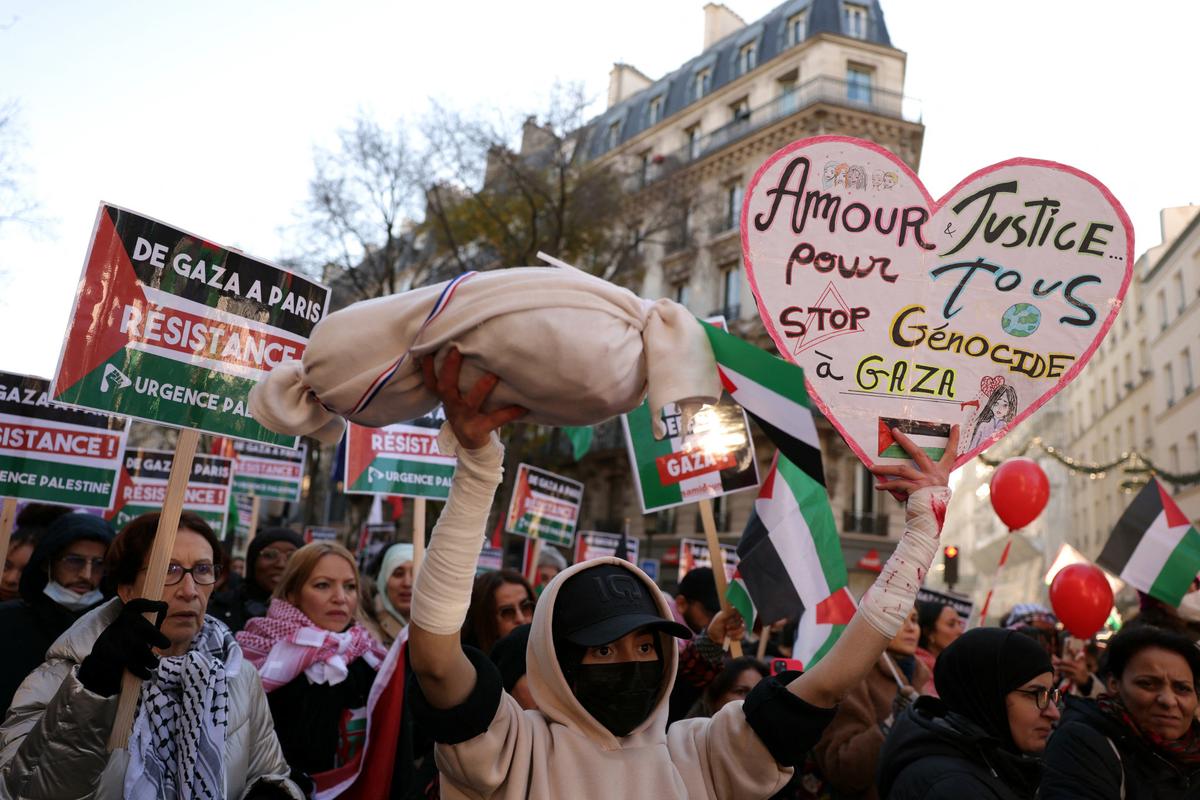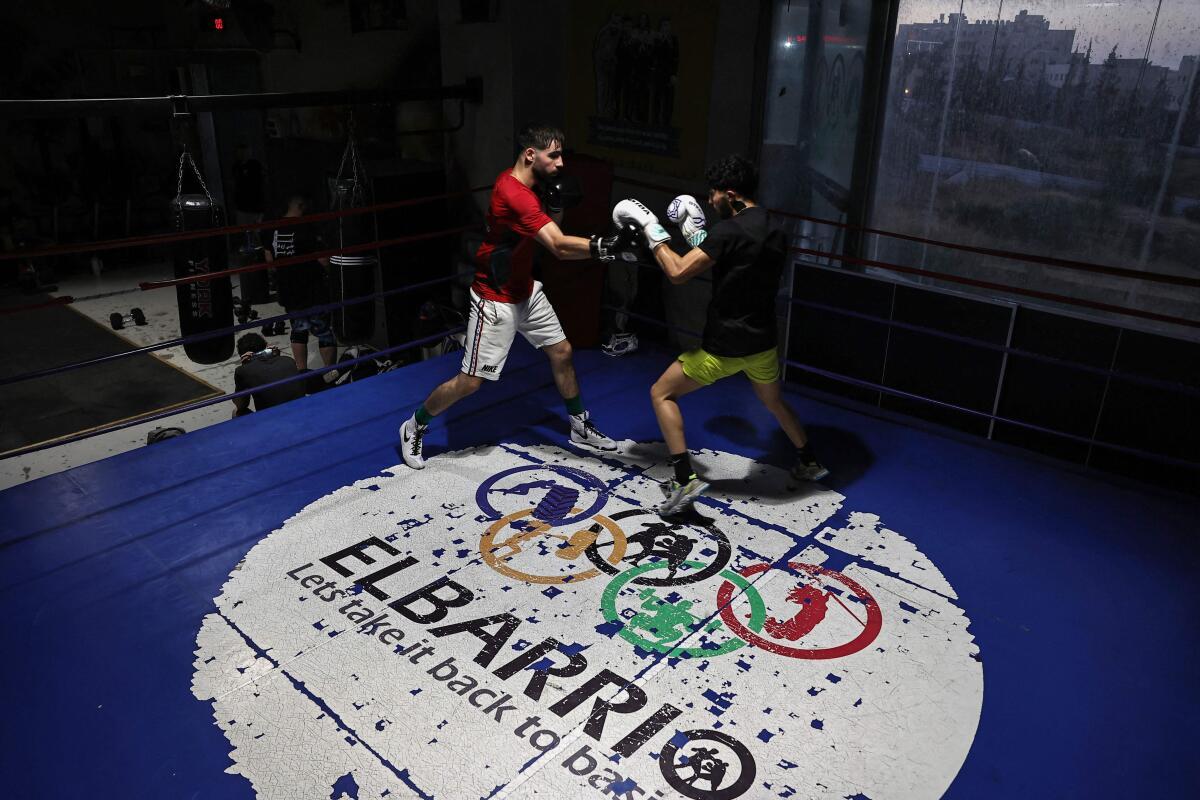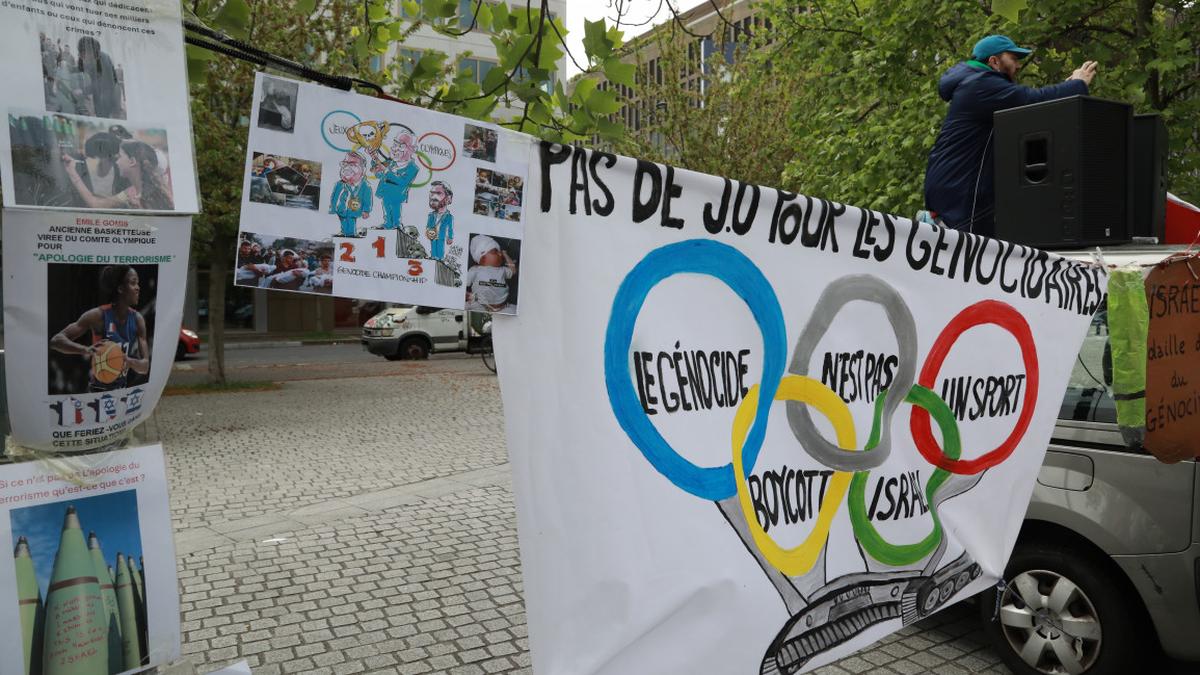Story so far: Paris is gearing up to host the 2024 Olympic Games from July 22 to August 11, when 10,500 athletes from over 200 countries will participate in 32 sports. Two nations – Russia and Belarus – will not be represented due to a ban imposed by the International Olympic Committee (IOC) following Russia’s invasion of Ukraine in 2022.
Athletes from Russia and Belarus will, however, be part of the Games, competing as individual neutral athletes (AINs) without the flags, anthems and emblems of their countries. Their participation is also subject to a thorough vetting process as per IOC’s eligibility criteria. Russia and its ally Belarus have faced global condemnation and strict sanctions over the Ukraine war.
However, another nation which is part of a different war has not been banned from the Olympics, faces minimal economic sanctions, and evenly split support and condemnation. Israel, whose war on Gaza has killed 38,000 Palestinians in less than 10 months, will be represented by 88 athletes in the Games.
Why are there calls to ban Israel from the Paris Olympics?
Since October 2023, Israel has waged war on Gaza with the objective of dismantling Hamas — the Islamist militant group controlling the enclave. Laying siege to Gaza, Israeli Defence Forces (IDF) have carpet-bombed the area, killing over 38,000 Palestinians, including 15,000 children, and displacing nearly all of the enclave’s population of 2.3 million.
IDF has also launched continuous air-strikes from Northern Gaza and steadily pushed deeper into Rafah in the south, claiming to have killed or captured about 14,000 Hamas fighters till date. Israel’s attack is in retaliation to an attack by Hamas on October 7, when militants breached the Israel-Gaza security barriers via motorcycles and bulldozers and launched a 5000-strong rocket strike, killing more than 1100 Israelis and taking hundreds hostage.
Palestinians inspect a house destroyed in an Israeli strike, amid the Israel-Hamas conflict, in Nusairat refugee camp, in the central Gaza Strip, on July 9, 2024.
| Photo Credit:
Ramadan Abed
Cease-fire talks mediated by Egypt and Qatar, and backed by the U.S, are currently on hold as both parties are yet to agree on terms regarding hostage release, withdrawal of troops and other issues. Images of cities in Gaza reduced to rubble, heavy civilian casualties and the miserable living conditions of survivors in refugee camps have earned Israel global condemnation.
Ten nations led by South Africa lodged a case against Israel in the International Court of Justice (ICJ), accusing Tel Aviv of committing a genocide of Palestinians in Gaza. The ICJ has ordered Israel to take preventive measures to stop the genocide in Gaza, but did not call for an immediate ceasefire. Several college campuses across Europe, Asia and the U.S. have seen pro-Gaza protests by students.
Citing these reasons, calls to ban Israel from participating in the Paris Olympics 2024 have emerged from several Muslim activist groups, sporting bodies, activists, and politicians. They argue that till Israel complies with international ceasefire demands, Israeli sport associations, including its teams, clubs, and participants, must be barred from participating in international competitions.
Who is calling to ban Israel from the Olympics?
Days after videos of Israeli soldiers turning one Gaza’s oldest sporting facilities— Yarmouk Stadium — into a makeshift camp to hold Palestinian detainees were released, the Jordan Football Association called upon the global sporting community to ban Israel from participating inpopular competitions.
Similarly, the Palestinian Football Association (PFA) wrote to the IOC and Fédération Internationale de Football Association (FIFA) seeking a probe into “occupation crimes against sports and athletes in Palestine.” The PFA claims that over 400 sportspersons, coaches and officials have been killed or wounded by the IDF since the war began.
In February, a group of 26 French lawmakers (chiefly belonging to left-wing parties) wrote to the IOC, seeking to stop Israel from participating in the Games. Similar to Russian and Belarusian athletes, Israel’s athletes must participate under a neutral flag, the lawmakers insisted.
Several human rights organisations, activists, and celebrities too have sought Israel’s exclusion from the Games. Citing IOC’s charter, which states that “every individual must have access to the practice of sport, without discrimination of any kind in respect of internationally recognized human rights within the remit of the Olympic Movement,” groups have alleged that Israel’s war has violated the rights of Palestinian athletes.
Are these different from calls to ban Russia?
On February 28, 2022, four days after Russia invaded Ukraine, the IOC banned the participation of Russian and Belarusian athletes and officials in the 2022 Winter Paralympic Games. Calling the attack a “blatant violation of the Olympic Truce,” the IOC allowed such athletes to compete as AINs.
“We are committed to fair competitions for everybody without any discrimination,” the IOC said in a statement. While individual athletes who meet all anti-doping criteria and have not actively supported the war in Ukraine are allowed to compete in the Games, Russian and Belarusian teams cannot.
Ukrainian refugees protest against any participation of Russian and Belarusian athletes at the Paris 2024 Olympic Games before the visit of Thomas Bach, President of the International Olympic Committee (IOC) to the Ruhr Political Forum in Essen, Germany, March 22, 2023. The placard reads “any Neutral flag for Russian athletes is covered with blood” and “No Olympics for Russia and Belarus.”
| Photo Credit:
JANA RODENBUSCH
IOC’s statement came in the wake of global sanctions by top European nations – United Kingdom, France, Germany, Italy, Finland, Norway, and Sweden and other global powers like the U.S., Canada, Australia, and Japan. Russia was already banned by the IOC due to a state-sponsored doping programme, and its athletes had attended the 2021 and 2022 Games under the name ‘Russian Olympic Committee (ROC).
Calls to ban Israel have arisen after almost four months since it first attacked Gaza. Moreover, most of the above-mentioned powers have not sanctioned Israel (economically or otherwise). Turkey has refused to resume trade with Israel until a ceasefire is secured. The U.K., U.S, Canada and France have sanctioned some Israeli settlers in the West Bank — an Israeli-occupied Palestinian territory.
The U.S, Germany and Italy have continued to sell arms and provide military aid to Israel despite global calls to halt this. While both U.S. and Germany have called on Israel and Hamas to sign a ceasefire, Washington has vetoed several U.N. resolutions condemning Israel. Hence, the calls to ban Israel from the Games have not had the same impact as those calling for a similar ban of Russia.
What are the reactions to the calls for a ban?
Sparse protests seeking Israel’s ban from the Paris Games are scattered globally. In Switzerland, protestors smeared red handprints on the IOC’s office in Lausanne to highlight the humanitarian crisis in Gaza. In France, which is home to the second-highest Muslim population in Western Europe, protestors have camped outside the IOC’s office in Paris seeking a boycott of Israel.

Protestors in Paris display banners reading ‘Stop Genocide in Gaza’, seeking boycott of Israel from 2024 Olympics
Banners reading ‘Genocide is not a sport’ and ‘Boycott Israel’ have been displayed by pro-Palestine protestors camping outside IOC’s office in Saint-Denis, outside Paris.
Eight Palestinian athletes participating in the Games have been touted as a ‘symbol of Palestine’s resistance’. “Through this participation, we want to present the suffering of the Palestinian people and the unprecedented killing taking place in Gaza,” said Palestine Olympic committee head Jibril Rajoub. Of the eight athletes, one secured a place through regular qualifying and seven were given special invitations.

A picture taken on June 22, 2024 shows Palestinian lightweight boxer Wassim Abu Sil (R) sparring at a gym in Ramallah city in the occupied West Bank, as part of his preparations after qualifying for the upcoming 2024 Paris Olympic games
Calls to ban Israel from sporting events is not new. Palestine-based group Boycott, Divestment and Sanctions (BDS), which has been seeking global sanctions on Israel since 2005 for its occupation in West Bank, East Jerusalem and Gaza Strip, has repeatedly called upon FIFA and IOC to ban Israel from their events. It has also condemned FIFA for sanctioning clubs which have supported Palestine.
What does IOC say?
In response to these calls for a ban, Paris 2024 Olympics Organising Committee chief Tony Estanguet told Reuters in January, “You have to stay in your place, not think that the Games are a magic wand that will solve all the problems and armed conflicts in our world.” He added that the Games can pacify relations and open the door for dialogue. Similarly, in March, IOC president Thomas Bach confirmed that Israel faces no threat to its Olympics status despite the war in Gaza.
Since the 1972 Munich Olympics, when eleven Israelis (sportsmen, coaches and a referee) were killed by Palestinian militants, security arrangements for Israeli athletes have been tight. This year, arrangements have been made such that Israeli cyclists and marathon runners will compete in secured venues in Paris.
With the Gaza and Ukraine wars in focus in Paris, the Olympic Games find themselves yet again cast under a dark political shadow.

